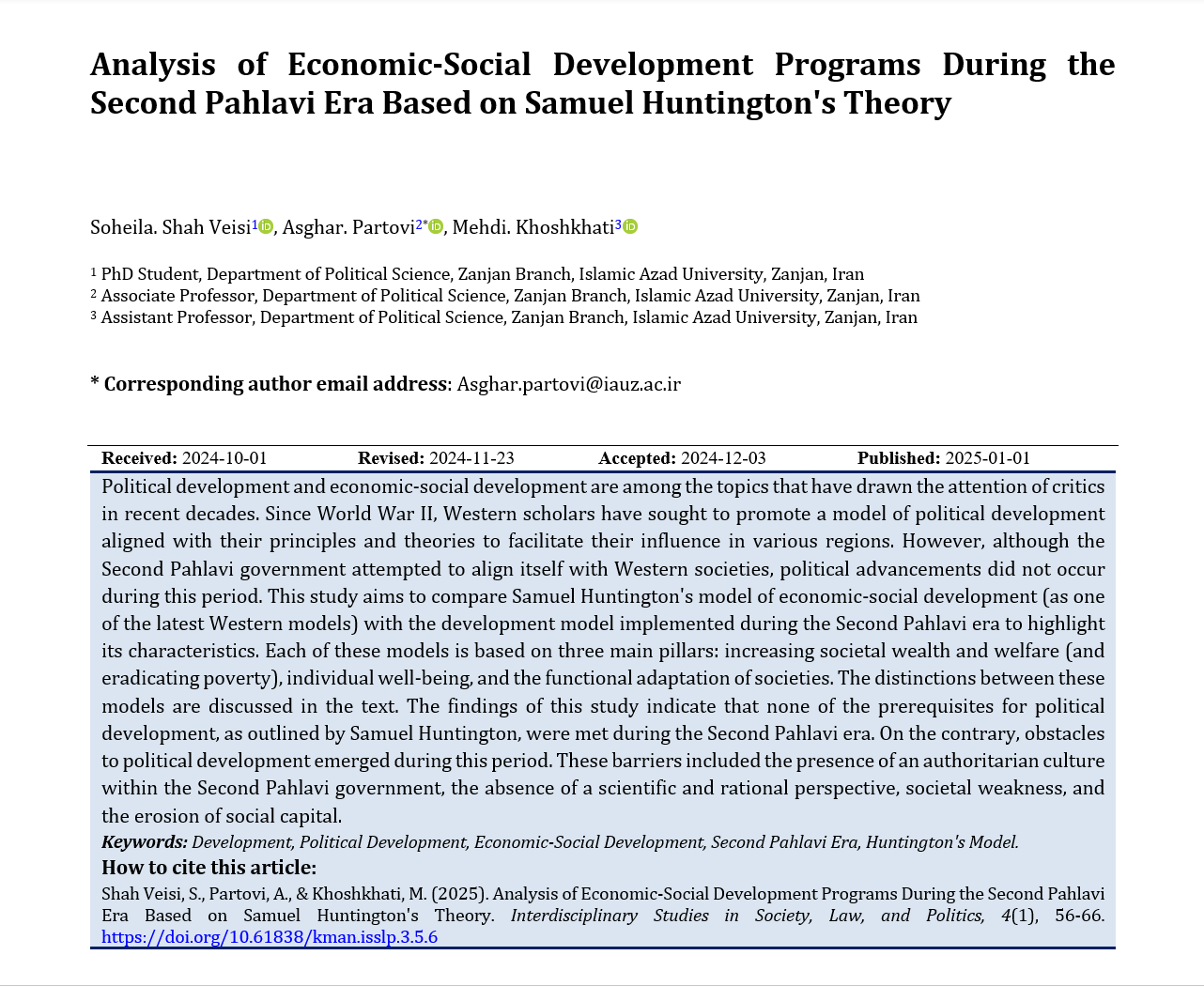Analysis of Economic-Social Development Programs During the Second Pahlavi Era Based on Samuel Huntington's Theory
Keywords:
Development, Political Development, Economic-Social Development, Second Pahlavi Era, Huntington's ModelAbstract
Political development and economic-social development are among the topics that have drawn the attention of critics in recent decades. Since World War II, Western scholars have sought to promote a model of political development aligned with their principles and theories to facilitate their influence in various regions. However, although the Second Pahlavi government attempted to align itself with Western societies, political advancements did not occur during this period. This study aims to compare Samuel Huntington's model of economic-social development (as one of the latest Western models) with the development model implemented during the Second Pahlavi era to highlight its characteristics. Each of these models is based on three main pillars: increasing societal wealth and welfare (and eradicating poverty), individual well-being, and the functional adaptation of societies. The distinctions between these models are discussed in the text. The findings of this study indicate that none of the prerequisites for political development, as outlined by Samuel Huntington, were met during the Second Pahlavi era. On the contrary, obstacles to political development emerged during this period. These barriers included the presence of an authoritarian culture within the Second Pahlavi government, the absence of a scientific and rational perspective, societal weakness, and the erosion of social capital.
Downloads






